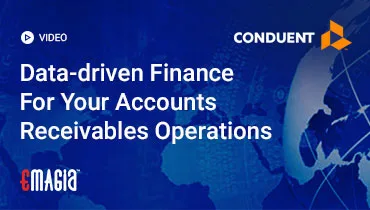Understanding the major factors that influence credit scoring is essential for anyone looking to maintain or improve their financial health. Credit scores play a pivotal role in determining loan approvals, interest rates, and even employment opportunities. This comprehensive guide delves into the key elements that affect credit scores, providing insights and strategies to help you navigate the credit landscape effectively.
1. Payment History: The Cornerstone of Credit Scoring
Payment history is the most significant factor in credit scoring, accounting for 35% of your FICO score. Lenders assess your reliability in repaying debts by examining your record of on-time payments. Late payments, defaults, and bankruptcies can severely impact your credit score. To maintain a positive payment history:
- Always pay bills on time.
- Set up automatic payments or reminders.
- Address any delinquencies promptly.
2. Credit Utilization Ratio: Balancing Credit Usage
Credit utilization refers to the percentage of your available credit that you’re currently using. It’s a crucial factor, comprising 30% of your credit score. High utilization rates can signal financial distress, while lower rates indicate responsible credit management. To optimize your credit utilization:
- Aim to keep utilization below 30%.
- Pay down high balances.
- Request credit limit increases cautiously.
3. Length of Credit History: Building a Credit Legacy
The length of your credit history contributes 15% to your credit score. A longer credit history provides more data on your financial behavior, aiding lenders in assessing risk. Key aspects include:
- Age of your oldest account.
- Average age of all accounts.
- Time since last account activity.
To enhance this factor:
- Keep older accounts open.
- Avoid opening multiple new accounts simultaneously.
4. Credit Mix: Diversifying Credit Types
A diverse credit portfolio, including various types of credit accounts, accounts for 10% of your credit score. Lenders favor borrowers who can manage different credit types responsibly. Common credit types include:
- Revolving credit (e.g., credit cards).
- Installment loans (e.g., mortgages, auto loans).
To improve your credit mix:
- Consider diversifying your credit accounts over time.
- Manage all credit types responsibly.
5. New Credit Inquiries: Managing Credit Applications
New credit inquiries can impact your credit score, making up 10% of the total. Each application for credit can result in a hard inquiry, which may lower your score temporarily. To minimize negative effects:
- Limit the number of credit applications.
- Shop for rate quotes within a short time frame to reduce impact.
- Monitor your credit report for unauthorized inquiries.
6. Alternative Data: Expanding Credit Assessment
Alternative data includes non-traditional information used to assess creditworthiness, such as:
- Utility and rent payments.
- Telecommunications bills.
- Bank account information.
Incorporating alternative data can benefit individuals with limited credit histories, providing a more comprehensive view of financial behavior.
7. Public Records and Defaults: Addressing Negative Marks
Public records, such as bankruptcies, tax liens, and civil judgments, can significantly harm your credit score. Defaults on loans or credit obligations also have adverse effects. To mitigate these impacts:
- Resolve outstanding debts promptly.
- Regularly check your credit report for inaccuracies.
- Work with creditors to establish repayment plans.
8. Debt-to-Income Ratio: Evaluating Financial Stability
While not directly included in credit scoring models, the debt-to-income (DTI) ratio is a critical metric for lenders. It compares your monthly debt payments to your gross monthly income, providing insight into your ability to manage additional debt. A lower DTI ratio indicates better financial health.
9. Identity Verification and Address Stability
Consistent and accurate personal information, including your name, address, and employment history, helps in verifying your identity and stability. Frequent changes or discrepancies can raise red flags for lenders. Ensure your information is up-to-date across all financial institutions.
10. Joint Accounts and Co-Signed Loans: Shared Responsibilities
Joint accounts and co-signed loans mean shared responsibility for debt repayment. Any negative activity, such as missed payments, affects all parties involved. Before entering such agreements:
- Assess the financial reliability of the other party.
- Establish clear communication regarding payment responsibilities.
How Emagia Enhances Credit Scoring Management
Emagia offers advanced solutions to streamline credit scoring management for businesses. By leveraging artificial intelligence and automation, Emagia’s platform provides:
- Automated Credit Assessments: Quickly evaluate creditworthiness using real-time data analytics.
- Risk Management Tools: Identify potential credit risks and implement mitigation strategies.
- Integrated Data Sources: Consolidate traditional and alternative data for comprehensive credit profiles.
- Customizable Scoring Models: Tailor credit scoring criteria to align with business objectives.
By adopting Emagia’s solutions, businesses can make informed credit decisions, reduce defaults, and enhance overall financial performance.
Frequently Asked Questions (FAQs)
What are the major factors to consider for credit scoring?
The primary factors include payment history, credit utilization, length of credit history, credit mix, and new credit inquiries. Each plays a significant role in determining your credit score.
How does payment history affect my credit score?
Payment history reflects your track record of repaying debts on time. Late or missed payments can significantly lower your credit score.
What is a good credit utilization ratio?
A good credit utilization ratio is typically below 30%. Lower ratios indicate responsible credit usage and can positively impact your credit score.
How can I improve my credit score quickly?
To improve your credit score:
- Pay bills on time.
- Reduce outstanding debts.
- Limit new credit applications.
- Check your credit report for errors and dispute inaccuracies.
Does checking my credit score lower it?
No, checking your own credit score is considered a soft inquiry and does not affect your credit score. However, hard inquiries from lenders can have a temporary negative impact.
How long do negative items stay on my credit report?
Most negative items, such as late payments and defaults, remain on your credit report for up to seven years. Bankruptcies can stay for up to ten years.
Can I have a good credit score without a credit card?
Yes, it’s possible to have a good credit score without a credit card by responsibly managing other types of credit, such as loans, and ensuring timely payments.
How does a joint account affect my credit score?
Activity on a joint account affects all account holders. Responsible management can benefit your score, while negative actions, like missed payments, can harm it.
Understanding and managing these factors can help you build and maintain a strong credit score, opening doors to better financial opportunities.



